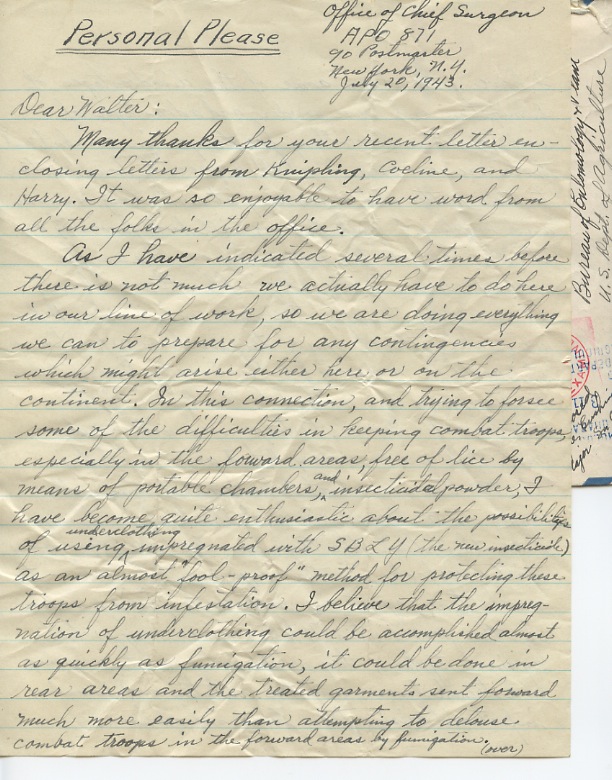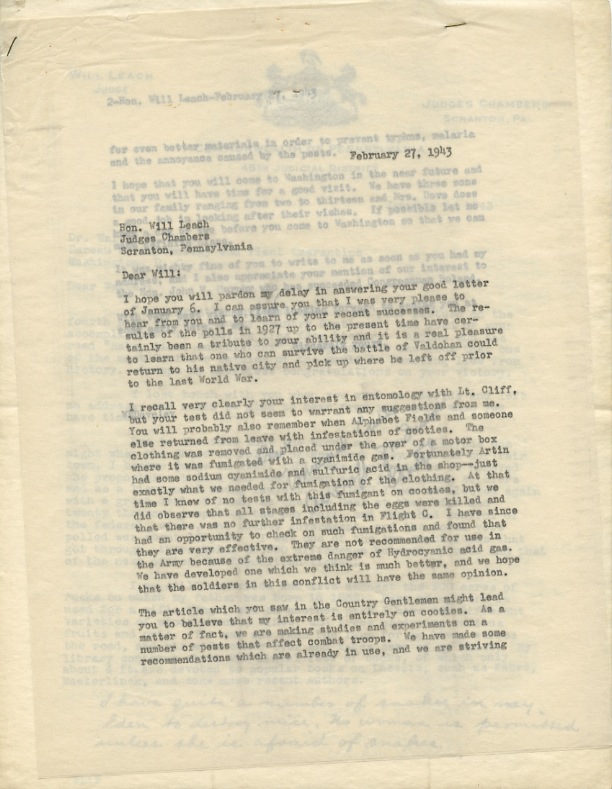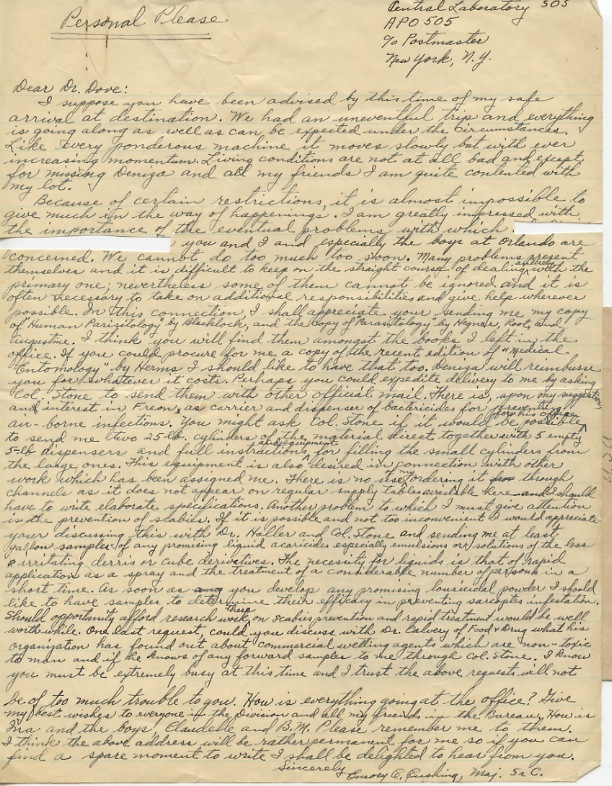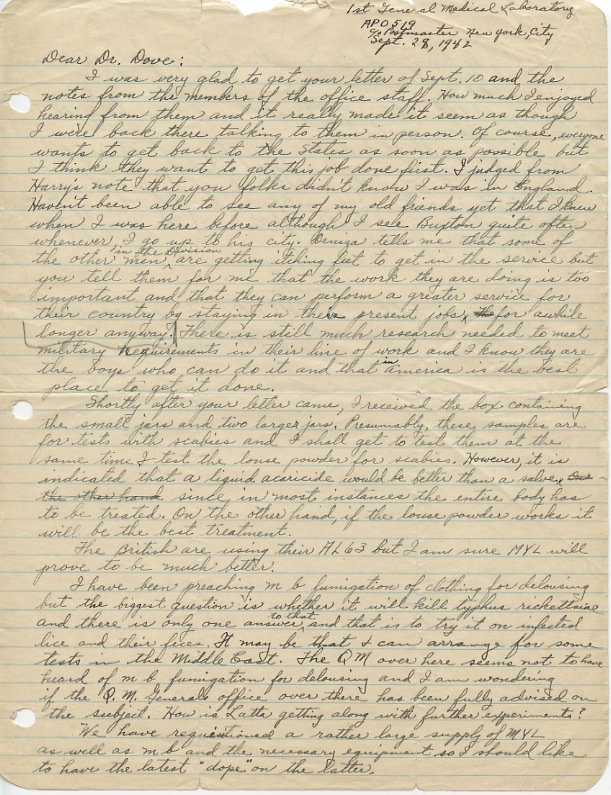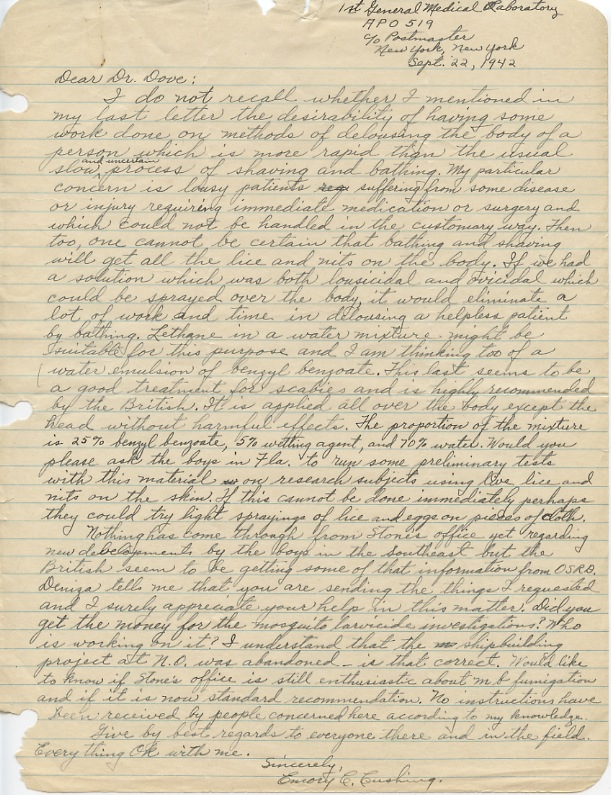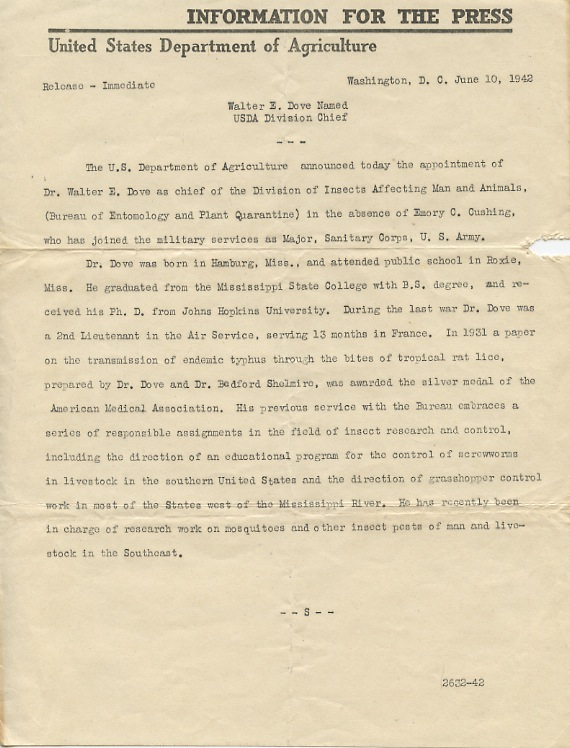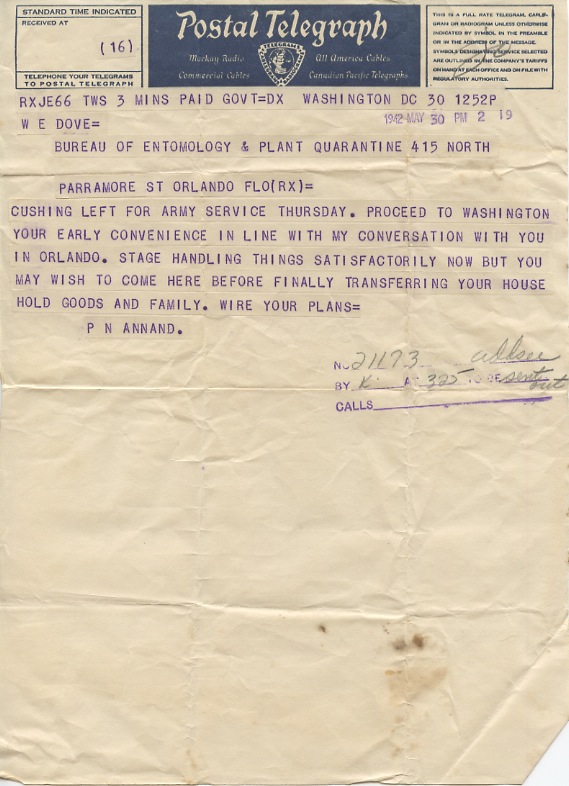Office of Chief Surgeon
APO 871
c/o Postmaster
New York, N.Y.
July 20, 1943
Personal Please
Dear Walter:
May thanks for your recent letter enclosing letters from Knipling, Coeline, and Harry. It was so enjoyable to have word from all the folks in the office.
As I have indicated several times before there is not much we actually have to do here in our line of work, so we are doing everything we can to prepare for any contingencies which might arise either here or on the continent. In this connection, and trying to forsee some of the difficulties in keeping combat troops, especially in the forward areas, free of lice by means of portable chambers, and insecticidal powder, I have become quite enthusiastic about the possibilities of using underclothing impregnated with SBLY (the new insecticide) as an almost “fool-proof” method for protecting these troops from infestation. I believe that the impregnation of underclothing could be accomplished almost as quickly as fumigation, it could be done in rear areas and the treated garments sent forward much more easily than attempting to delouse combat troops in the forward areas by fumigation.
I have jotted down some of the disadvantages of fumigation and louse powder, and advantages of impregnated underclothing for troops in combat and these are enclosed. I shall appreciate having your reaction to this matter and discussing it with Long, Simmons and Knipling. I think Knipling will look favorably on it. We could do the impregnating over here as the various solvents are available. It would only be necessary to ship the bulk insecticide. Before we could attempt any of this work over here, however, it would be necessary for the Surgeon General’s office to recommend the method to the Office of the Quartermaster Gneeral. Perhaps you will consider more tests are necessary but I am confident in the results secured at Orlando that they will apply on a larger scale. I think it is things like this that the American Typhus Commission will overlook in their experimental work – too much time spent on vaccines to the exclusion of other possibilities. While vaccines may protect against typhus, they would not prevent relapsing, and trench fevers, and the irritation and secondary infections arising from louse infestations.
Please note my new APO number and send any letters to me at that address.
Would it be possible for you to give me a list of the items that were shipped to me from the office there on or about December 1, 1942. I have gotten on the track of some of them but they have been scattered to various depots and I shall have trouble in getting them all together unless I have a complete list.
I am glad to learn that Harry may have the opportunity of going to the field for tests with repellents. This same thing should be being done in every theatre where we have troops, and against species which are known to occur in areas where we are likely to have troops. I am especially interested in the species occurring in the Near East and the Balkans. Tests with some of these species could be done in parts of Africa, Syria, Cyprus, and Palestine. I don’t see why they can’t use Bunn, Barrett, and me for such work. We could get back here in 24 hours if necessary. At present we are abstracting all the most important available literature on insects of medical importance in Europe, the Balkans, and Mediterranean areas.
Please remember me to Ina and the boys and all the folks in the Bureau.
Sincerely,
Emory.

